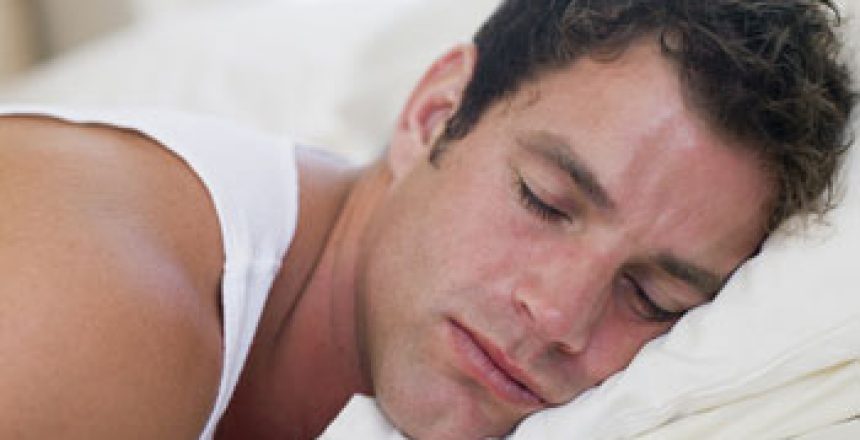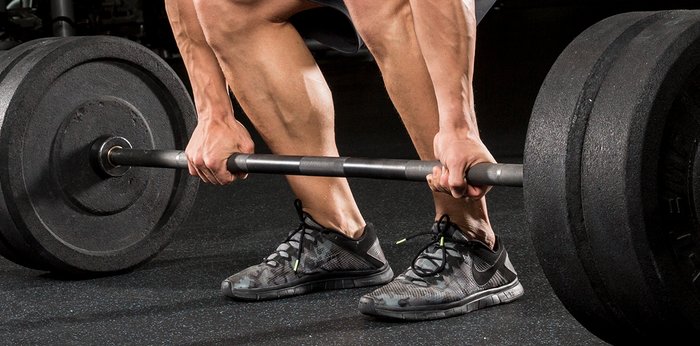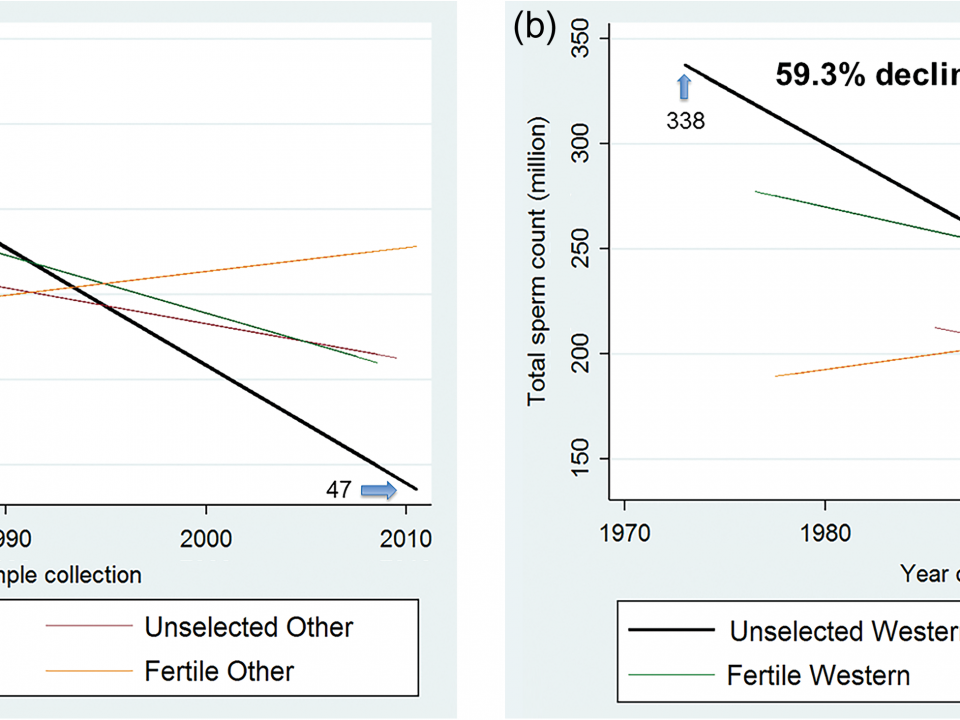We saw in our last article that testosterone is very important for men’s health, and that for optimal health, abnormally low T levels ought to be corrected either through lifestyle changes – diet, exercise, sleep – or through supplementation. In this article, we’ll discuss the importance of more sleep for higher testosterone.
Less sleep associated with lower testosterone
In older men, age 64 to 74, testosterone levels were highly correlated to the amount of sleep they got on the previous night. The correlation coefficient, r=0.842, which is high. See chart below.

The difference in T levels among the men was large, ranging over several hundred ng/dL, so this is not a small effect by any means.
The question is, how much of this correlation is due to ill health and/or aging? Older people notably sleep less, and other health problems can both make that worse and also decrease testosterone. So what we want to know is whether sleep directly affects testosterone levels.
Sleep restriction decreases testosterone
The answer is, yes, sleep directly affects testosterone.
In young healthy men, decreasing the amount of sleep from 8 to 5 hours a night, for 8 nights, decreased testosterone from 10 to 15%.
Symptoms and signs of androgen deficiency include low energy, reduced libido, poor concentration, and increased sleepiness, all of which may be produced by sleep deprivation in healthy individuals.
Sleep restriction also increases insulin resistance, and since as we saw in the previous article that insulin resistance and testosterone levels are intertwined, that makes sense.
Shift work is associated with ill health
Shift work, which is working hours other than during the daytime, such as swing shift (3:00 PM to 11:00 PM), or night (graveyard) shift (11:00 PM to 7:00 AM) is associated with ill health, including heart disease and cancer.
Given the above correlations between sleep and testosterone, we could also expect to find that shift work would decrease testosterone. Shift work is associated with elevated cortisol levels and higher BMI, and that would likely mean a decrease in testosterone.
Get some sleep
If you have low testosterone, one of the first things you should examine is whether you get enough sleep, and that applies to both young and older men.
If you do shift work, consider changing to another job, or at least another shift.










12 Comments
I struggle with sleep. I have tried melatonin; sometimes it works, sometimes not. Exercise in the evening after supper sometimes gives me a good sleep, sometimes not. I welcome any suggestions for getting a good nights sleep.
You might want to search for the various podcasts from Dr. Kirk Parsley who has a lot to say about sleep hygiene. Also, you might want to investigate the class of compounds that Ipamorelin is in since some people find it very effective for sleep.
I look up Parsley and his sleep remedy. About the same time I had my annual medical checkup, and I told my M.D., who is holistic by the way, about the ingredients in Parsley’s potion. My physician gave me something called Kavinace. I have only tried it twice, but I slept very well both times. Has anyone else tried Kavinace?
Trying hard to not be the lunatic commentator who has “that one weird trick that fixes X”
I was having TERRIBLE issues with sleep (and stubborn hypertension) until I did all of the following:
1) Increasing my salt intake to the levels recommend by Robb Wolf and the Ketogains people (+2 Tsp supplemental salt) I have NOT read the book “the Salt Fix” but I am guessing my sodium intake is inline with the authors recommendation
2) Stopped eating egg yolks. I am a low-carb/keto person and I used to eat A LOT OF EGGS – probably 6-8 daily. Egg yolks are high in Arachidonic acid which in some case can cause health issues. I got this information from Dr Mike Eades author of Protein Power a lowcarb/paleo diet book. There is a sections in this book on how excessive consumption of Arachidonic acid and cause health issues. I stopped eating egg yolks and bam! My blood pressure decreased and my sleeping improved dramatically
3) “Normal Sleep Hygiene”
a) Blu Blocker Glasses in the evening
b) melatonin
c) No Caffeine after 12:00 Noon.
What can be done to mitigate the effects of shift work?
In my opinion, having done lots of shift work in my life, ensuring that you get enough sleep despite the time of day is important. While it won’t completely mitigate the bad effects of shift work, that may be the most important. It’s difficult though; when i worked night shifts and went to bed at 8 AM, I found it tough to sleep past noon. Likewise, going to bed at midnight after a swing shift, it was often hard for me to sleep past 7 AM.
If you want to mitigate some other factors and don’t care what others think, wear some blue-blocking glasses if you’re under fluorescent lights at work. Another thing: try to keep the rest of your life healthy; for instance, if you work nights, don’t eat from McDonald’s or from a vending machine.
I work grave. I stay awake till 1pm then use the body’s normal siesta (3pmish) to stay asleep.
Also it appears that Myo-X is no longer on sale anywhere.
Also have you seen the research that Berberine upregulates AMPK and increases myostatin? I haven’t seen anything but there is talk. Along with protein kills you faster….
I started using Myo-X. After 3 months there was very noticeable improvements. I’m 52.
Thanks for your site.
I wonder how they’re measuring sleep in these studies, self-reported or accurately measured? There’s quite a big difference.
My wrist-mounted fitness tracker uses my heart rate and movements during the night to determine sleep stages and awake times, and one of the eye-opening things is that I get significantly less sleep than I’d previously thought. Beforehand, I’d count (say) 10pm-6am as 8 hours sleep; now, I know that I typically spend around an hour of that time awake, even if some of the waking intervals are too brief for me to remember. This has caused me to lower my target sleep time from 7+ hours to around 6-6.5, which seems to be a sustainable amount. But it makes a pretty big difference in that testosterone chart!
Hi Murray – in that study, they did indeed measure the amount of sleep. I’m in the same boat regarding sleep that you are: I’m in bed for 8 hours, but I know I sleep less, probably more like 7.
This jibes with other studies I’ve seen in collegiate athletes. In a couple of these studies, they had athletes go from getting 7-8 hours of sleep a night all the way up to 10 hours a night. Although most people seem to consider 7-8 enough, in these studies, their sport performance increased pretty much across the board as a result of this extra sleep. I can’t help but wonder if a rise in testosterone could’ve explained the difference in part.
Both those studies, and the graphs you showed near the beginning of this post (sleep -> T, looks like a pretty much linear association) make me wonder what the optimum amount of sleep really is. I suspect for some purposes 9-10 hours may be the ideal. (For longevity, I’m not so sure. Could an “intermittent sleep fast” be of benefit? Who knows?)